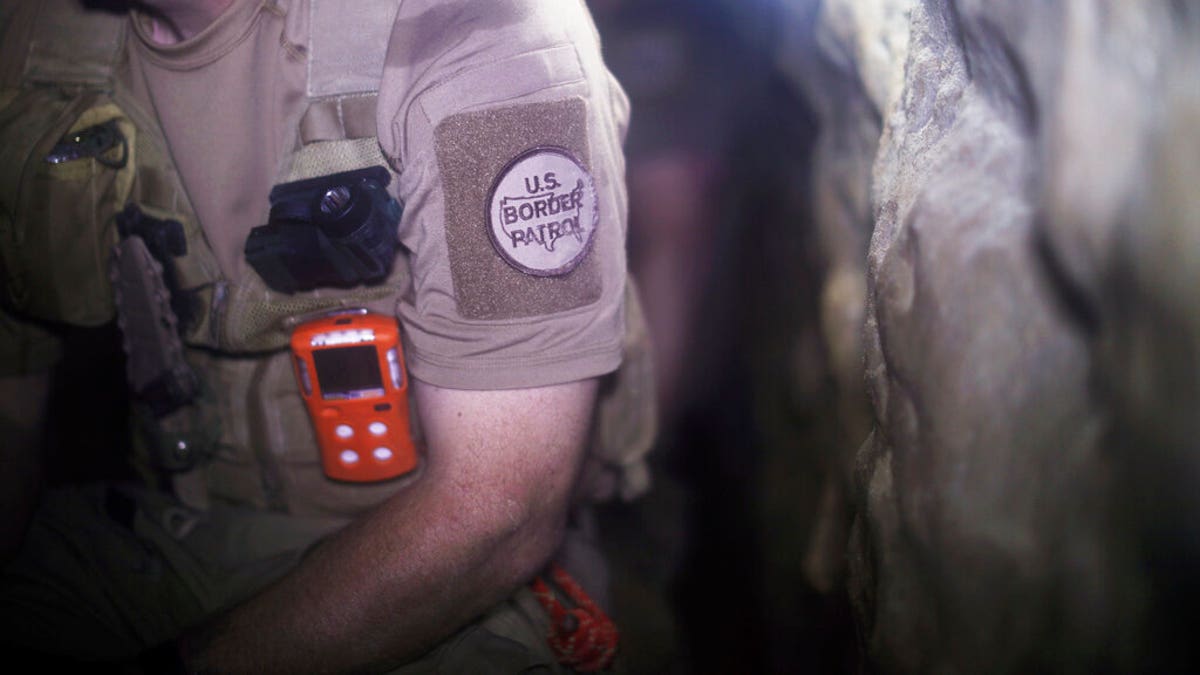Ebola drug shows promise in treating coronavirus
Insight from Fox News medical contributor Dr. Marc Siegel.
Get all the latest news on coronavirus and more delivered daily to your inbox. Sign up here.
The coronavirus pandemic is reportedly crippling the illegal drug trade, as borders shut down and supply chains linking Mexico to China are severed.
Law enforcement officials and trafficking experts told The Associated Press that the lockdowns have turned cities into ghost towns and are disrupting everything from production to transport to sales.

This March 2020 photo provided by the U.S. Border Patrol's San Diego Tunnel Team shows an agent in a tunnel under the Otay Mesa area of San Diego, Calif. (U.S. Border Patrol via AP)
“(Drug traffickers) are facing a supply problem and a demand problem,” said Alejandro Hope, a security analyst and former official with CISEN, the Mexican intelligence agency. “Once you get them to the market, who are you going to sell to?”
Virtually every illicit drug has been impacted, with supply chain disruptions at both the wholesale and retail level. The U.S. Drug Enforcement Administration has even reported a decrease in money laundering and online drug sales on the dark web.
Cocaine prices are up 20 percent or more in some cities. Heroin has become harder to find in Denver and Chicago, while supplies of fentanyl are falling in Houston and Philadelphia. In Los Angeles, the price of methamphetamine has more than doubled in recent weeks to $1,800 per pound.
Synthetic drugs such as methamphetamine and fentanyl have been among the most affected, in large part because they rely on precursor chemicals that Mexican cartels import from China, cook into drugs on an industrial scale and then ship to the U.S.
Though some clandestine labs that make fentanyl from scratch have popped up sporadically in Mexico, cartels are still very much reliant upon Chinese companies to get the precursor drugs.
CORONAVIRUS SNUFFS OUT 4/20 POT-SMOKING CELEBRATION IN SAN FRANCISCO, MAYOR IMPLORES 'DO NOT COME'
Huge amounts of these mail-order components can be traced to a single, state-subsidized company in Wuhan that shut down after the outbreak earlier this year, said Louise Shelley, director of the Terrorism, Transnational Crime and Corruption Center at George Mason University, which monitors Chinese websites selling fentanyl.
“The quarantine of Wuhan and all the chaos there definitely affected the fentanyl trade, particularly between China and Mexico,” said Ben Westhoff, author of “Fentanyl, Inc.”
“The main reason China has been the main supplier is the main reason China is the supplier of everything — it does it so cheaply,” Westhoff said. “There was really no cost incentive for the cartels to develop this themselves.”
But prices across China for precursors of fentanyl, methamphetamine and cutting agents have risen between 25 percent and 400 percent since late February, said Logan Pauley, an analyst at the Washington-based Center for Advanced Defense Studies.
Some cartels have begun taking steps to decrease their reliance on overseas suppliers by enlisting scientists to make their own precursor chemicals even as drug precursor plants in China are slowly reopening.
CLICK HERE TO GET THE FOX NEWS APP
Nonetheless, narcotics are still making their way into the U.S. Last month, U.S. authorities seized $30 million worth of street drugs in a smuggling tunnel connecting a warehouse in Tijuana to southern San Diego.
The Associated Press contributed to this report.

